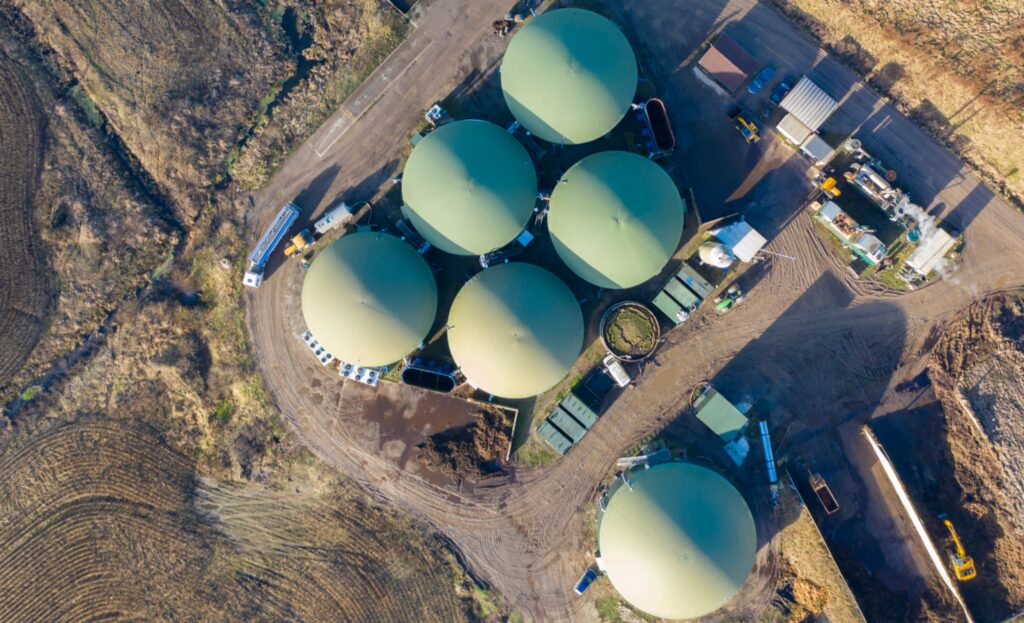
In today’s world, the transition to renewable energy is no longer just an option; it is a necessity. As businesses seek to reduce their carbon footprint and embrace sustainable practices, renewable gas emerges as a promising solution. The United Kingdom, known for its commitment to clean energy, is at the forefront of this transition.
Learn about renewable gas in the UK by clicking here: https://businessenergycomparison.com/business-gas/
Table of Contents
1. Understanding Renewable Gas

Source: ekoenergy.org
Renewable gas, also known as biomethane is produced from organic waste, such as food and agricultural residues, through a process called anaerobic digestion. This process captures methane, a potent greenhouse gas, and converts it into a sustainable energy source. The resulting biomethane can be used as a substitute for fossil natural gas in various applications, including heating, cooling, and electricity generation.
2. Reducing Greenhouse Gas Emissions
One of the primary advantages of switching to sustainable gas is the significant reduction in greenhouse gas emissions. As biomethane is produced from organic waste, its combustion releases carbon dioxide (CO2) that was already captured from the atmosphere during the growth of the organic matter. This results in a closed-loop carbon cycle, making biomethane a low-carbon and renewable energy source. By utilizing sustainable gas, businesses can drastically reduce their carbon footprint and contribute to mitigating climate change.
3. Cost Savings and Financial Incentives
While the initial investment for sustainable infrastructure may seem daunting, businesses can benefit from long-term cost savings and financial incentives. Renewable projects are eligible for government incentives, such as the Renewable Heat Incentive (RHI) and the Renewable Transport Fuel Obligation (RTFO), which provide financial support for the production and use of sustainable gas. These schemes help offset the higher upfront costs and make the transition financially viable for businesses. Additionally, as renewable gas becomes more mainstream, economies of scale are expected to drive down production costs, making it an increasingly cost-effective energy solution.
4. Energy Security and Resilience

Source: oscarsdg.com
The utilization of renewable gas enhances energy security and resilience for businesses. Unlike fossil fuels, which are finite resources subject to price volatility and geopolitical uncertainties, biomethane production can be localized and decentralized. This allows businesses to generate their own sustainable gas on-site or source it from nearby biomethane plants, reducing dependence on external energy suppliers. By diversifying their energy sources and embracing renewable gas, businesses can ensure a reliable and secure energy supply, minimizing the risks associated with traditional energy sources.
5. Improving Corporate Social Responsibility
The switch to renewable gas aligns with the growing importance of corporate social responsibility (CSR). Today, customers, employees, and investors expect businesses to demonstrate their commitment to sustainability and environmental stewardship. By adopting renewable energy solutions, including sustainable gas, businesses can showcase their dedication to reducing greenhouse gas emissions, combating climate change, and preserving the environment. This commitment not only strengthens their reputation but also attracts environmentally conscious customers and helps retain top talent.
6. Government Support and Policy Environment
The UK government has set ambitious targets to decarbonize the economy, which includes a focus on renewable gas. The commitment to renewable energy is reflected in policies and regulations that promote its adoption. The UK Renewable Energy Roadmap outlines the government’s strategy to increase the share of sustainable gas in the energy mix, ensuring a supportive environment for businesses making the switch. By capitalizing on government support and aligning with national sustainability goals, businesses can position themselves as leaders in the green energy transition.
7. Overcoming Challenges

Source: greenbiz.com
While the benefits of renewable gas are significant, businesses must be aware of the challenges associated with its adoption. Some common hurdles include the availability and accessibility of organic waste feedstock, the upfront costs of infrastructure development, and the need for dedicated anaerobic digestion facilities. However, partnerships with waste management companies, collaboration with industry associations, and engagement with renewable energy experts can help overcome these challenges and facilitate a successful transition.
8. Sector-Specific Applications
Renewable gas offers sector-specific applications that cater to various industries. In the transportation sector, biomethane can be used as a sustainable alternative to conventional natural gas or diesel, powering buses, trucks, and even ships. This not only reduces greenhouse emissions but also helps businesses comply with stricter emissions standards and regulations. In the agricultural sector, renewable gas can be utilized to power farm machinery, heat greenhouses, or even be injected into the national gas grid. The versatility of renewable gas allows businesses across different sectors to find tailored solutions that meet their specific energy needs while reducing their environmental impact.
9. Circular Economy and Waste Management
Switching to renewable gas fosters a circular economy and promotes effective waste management practices. Organic waste, which would otherwise be landfilled or incinerated, can be transformed into a valuable resource through anaerobic digestion. By diverting organic waste from traditional disposal methods, businesses can reduce methane emissions from landfills and harness the energy potential of the waste. This not only contributes to the reduction of greenhouse gas emissions but also promotes sustainable waste management practices, aligning with the principles of a circular economy.
10. International Market Opportunities

Source: airswift.com
The transition to renewable gas presents significant international market opportunities for businesses. The UK is part of an interconnected European gas network, allowing for the trading and transportation of biomethane across borders. This opens up avenues for businesses to participate in the European biomethane market, which is projected to grow rapidly in the coming years. Exporting renewable gas to countries with high demand for clean energy, such as Germany and the Netherlands, can provide additional revenue streams and expand business opportunities beyond domestic operations. By capitalizing on international market opportunities, businesses can establish themselves as global players in the renewable energy sector.
Seizing the Green Energy Advantage
Switching to renewable gas in the UK offers a multitude of benefits for businesses, ranging from sector-specific applications and waste management advantages to international market opportunities. By embracing renewable gas, businesses can position themselves at the forefront of the green energy transition, demonstrating their commitment to sustainability, reducing greenhouse gas emissions, and reaping the long-term rewards of a renewable energy source. As the world moves towards a cleaner and more sustainable future, making the switch to renewable gas is not only a responsible choice but also a strategic one for businesses looking to thrive in an evolving market. The time to embrace renewable gas and its numerous advantages is now.







